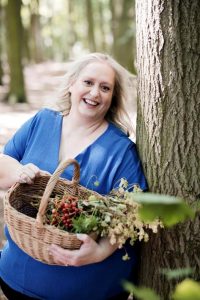
Armed with her trusty wicker basket and shopping list, Alysia Vasey applies a slick of lipstick before she’s ready to leave her Doncaster home to collect groceries.
Just another humdrum task for most, but Alysia’s destination of choice isn’t her local supermarket or farm shop; I’m not sure she’d find giant chickweed, beechnuts, or sweet woodruff there. Plus, she’d probably get a few alarmed looks from her fellow shoppers if they saw the tools she was carrying.
Instead, she and her husband Chris are off to the woodland behind their house in search of the treasures of the wild. Her marketplace stretches from moors to mudflats, coastal cliffs to marshes, fields to rockpools. From the first signs of spring to the arrival of winter, Alysia scours the Yorkshire landscape to gather that day’s ingredients order.
Alysia’s alias is the Yorkshire Forager; a botanicals expert and wild food consultant who supplies some of the world’s finest chefs and restaurants with fresh produce handpicked from Yorkshire landscapes. Her contacts book is a ‘who’s who’ of fine dining, including 25 Michelin-star chefs who are eager to enhance their menus with some of nature’s most elusive and exclusive finds.
“It all seems a bit surreal when you just pick weeds for a living,” she says.
But there is far more to foraging than that. It may sound like something out of a fairy tale with visions of deer prancing past while she sings to the birds; but in reality, Alysia is battling the elements and earthly environments using SAS survival techniques to select her wares.
It’s easy to become entranced by Alysia’s vast knowledge of the botanical world and the science behind it. Her reputation hinges on it. As she says, there are no accreditations or qualifications, just a basis of trust.
“Who knows how to challenge a forager? While you can’t be arrogant when you’re working amongst industry greats, I am also immensely proud of my reputation and I wear it on my back like a juggernaut. Sequins and all,” she says.
And so she should be. Since launching Yorkshire Foragers ten years ago, Alysia has become one of the country’s most in-demand wild food experts, appearing on the likes of James Martin’s Saturday Morning and BBC Countryfile. This year, she released her first book, The Yorkshire Forager: A Wild Food Survival Journey which gives a detailed insight into her own personal journey stemmed from childhood memories of foraging with her Polish grandad, along with tips for the foraging year and what to look for.
What she doesn’t know about foraging isn’t worth knowing. She works with chefs to explain flavour profiles, the history of plants, their medicinal or culinary properties, how to prepare and preserve them, are they water, oil or alcohol soluble.
Then there is the muddy subject of which plants are toxic – something that even confuses experts.
“There are 4,500 different types of mushrooms growing in the UK, most of which look very alike. About ten percent are wonderfully edible. Two percent are deadly and would destroy you from the inside out.
“Every single bit of a pine tree is edible, from the pinecones to the young cores and green shoots and even the needles. Whereas every bit of a yew tree is toxic. Yet I have had chefs confuse the two evergreen trees and be adamant the tree they’ve been collecting cuttings from isn’t going to poison anyone.”
With authenticity comes the need for sustainability and responsibility. Foragers are sometimes accused of exploiting our natural environment, a perception which Alysia is conscious to dispel.
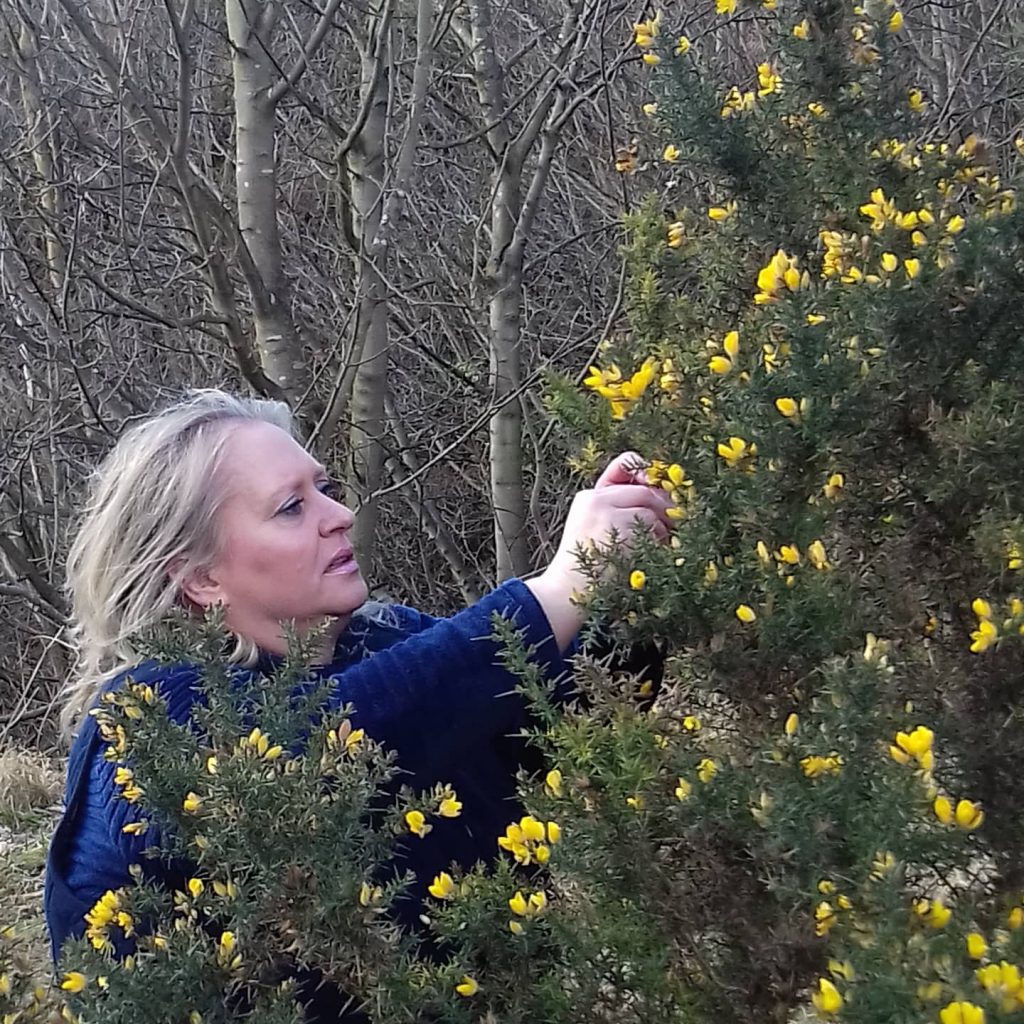
“We always pick from the same places every year and we never over-pick any items as I am fully aware that produce may be there one day and not the next. Some are seasonal while others are biennial so are only available every other year.
“In Yorkshire, there are many former industrial sites like old pits and engineering works where plants have begun to grow over the years. But who knows what chemicals have seeped into the soil. I can’t afford to supply products from contaminated or toxic environments so chefs like that I can tell them exactly where the produce they are serving their customers have come from.”
These are just a handful of reasons why Alysia never shares her foraging locations with anyone – not even her clients – to ensure she protects the environment from haphazard and over-zealous harvesting.
With mass produced food, supermarkets and restaurants at our disposal, it would feel like augmented reality if we were all reliant on finding food in its natural environment. During this year, we have all been aghast at the lack of flour on the shelves due to the mass hysteria of stockpiling food. But foraging is essentially a hallmark of human survival, our sheer existence the product of ancestral hunter gatherers.
For Alysia, she owes her life – and her livelihood – to her Grandad Dan’s survival instincts.

Dan Szperka was just a teenager when he and his younger brother Ted relied on mother nature to take care of them. Born in Poznan in Poland, Dan and Ted were both railway engineer apprentices to their father when the Germans invaded in 1939. It was in their hometown that the Nazis built the first gas chambers to practice their execution technique on local residents who they saw as traitors for renouncing their German citizenship at the collapse of the Prussian rule.
The young brothers transported people to the concentration camp on rail wagons but rebelled by giving prisoners onboard food and water or undoing the locks to let them free. They were eventually caught by the SS and themselves taken to the camp, yet before arrival they managed to escape and flee into the vast forests.
They knew they would never survive the harsh winter months – or evade capture from the ever-pressing Nazis – if they weren’t smart. They slept in caves and drank water from streams, staving off hunger by foraging. They ate young pinecones, ash keys, berries and nuts, then as spring arrived they found wild garlic and a fungus called chicken of the wood. They made fish traps from willow branches and rabbit snares from bootlaces and discarded tin cans.
Months and months of a stringent and solitary existence saved their lives. The brothers joined the Warsaw uprising before Dan was clandestinely relocated to the UK where he settled in the Bradford area.
He found work in a carpet mill where he met Winnie Hickman from Hoyland in Barnsley. The pair soon married and moved to the Ryburn Valley in Calderdale, West Yorkshire. Today, Dan and Winnie, now 95 and 93, still live in the very same house and will have been married 72 years on Christmas Eve. He rarely speaks about his time in Poland and only recently learnt his father was killed by the Nazis when he and his brother escaped.
Winnie and Dan had four children and, like most families in the post-war years, money was tight. Dan used what he’d learned at home in Poland and would pick mushrooms, fruit and nuts on his was home from night shifts at the carpet mill to supplement the grocery shop.
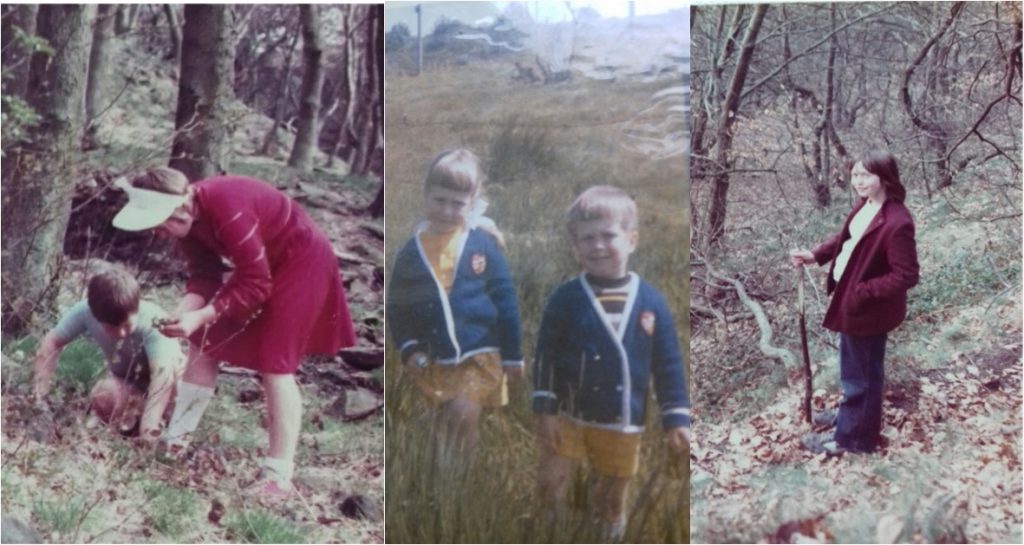
Their daughter, Barbara, went on to have Alysia and her brother Adrian who spent most weekends with their grandparents after Alysia’s policeman father tragically died of a heart attack aged 31. Grandad Dan would take the kids up on Norland Moors picking bilberries and blackberries, or collecting baskets of mushrooms, sorrel, dandelion leaves and sweet chestnuts on their adventures.
“Ever since I could walk I’ve been fascinated by nature. By the time I was seven or eight I could identify every tree, plant, flower, animal and bird that we came across – which things were safe to eat and which to steer clear of. Our childhood was spent outdoors playing in the woods, climbing trees and building dens.”
Yet, the idea of turning this innocent family hobby into a career didn’t flower for Alysia until around 15 years ago.
After leaving school, she joined the Navy as a helicopter engineer and was deployed to Cornwall. Here, she fell in love with coastal foraging, particularly the plants she wasn’t as familiar with, such as pennywort and samphire, which needed a different climate and terrain than at home in Calderdale.
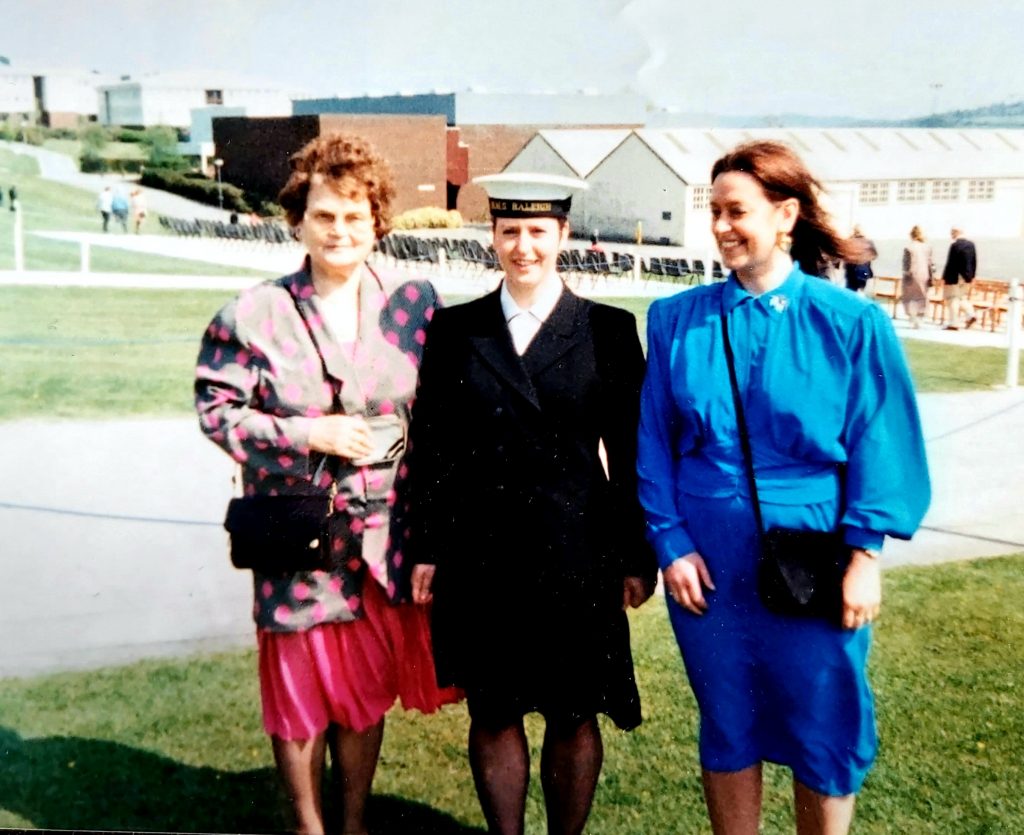
She then left the armed forces to begin a law and politics degree at University of East Anglia. But, despite winning graduate awards, decided against a litigation career and moved back to Yorkshire to work in social care, unaware that her future steps would include a sturdy pair of boots and a machete.
“Becoming a professional forager happened organically. One day in 2005 I was in the hairdressers when I decided I was going to pick mushrooms for a living. I’d become obsessed with truffles and would take my mum and the world’s worst truffle hound out most weekends, excited to find new hotspots.”
While truffle hunting, she came across a patch of giant puffball mushrooms which look rather like a large skull or boulder. She posted a photo on a fungi forum and was contacted by a man she’s since dubbed Mushroom Martin. He put a huge order in and subsequently introduced her to Manchester-based chef, Aiden Byrne, the youngest ever recipient of a Michelin star.
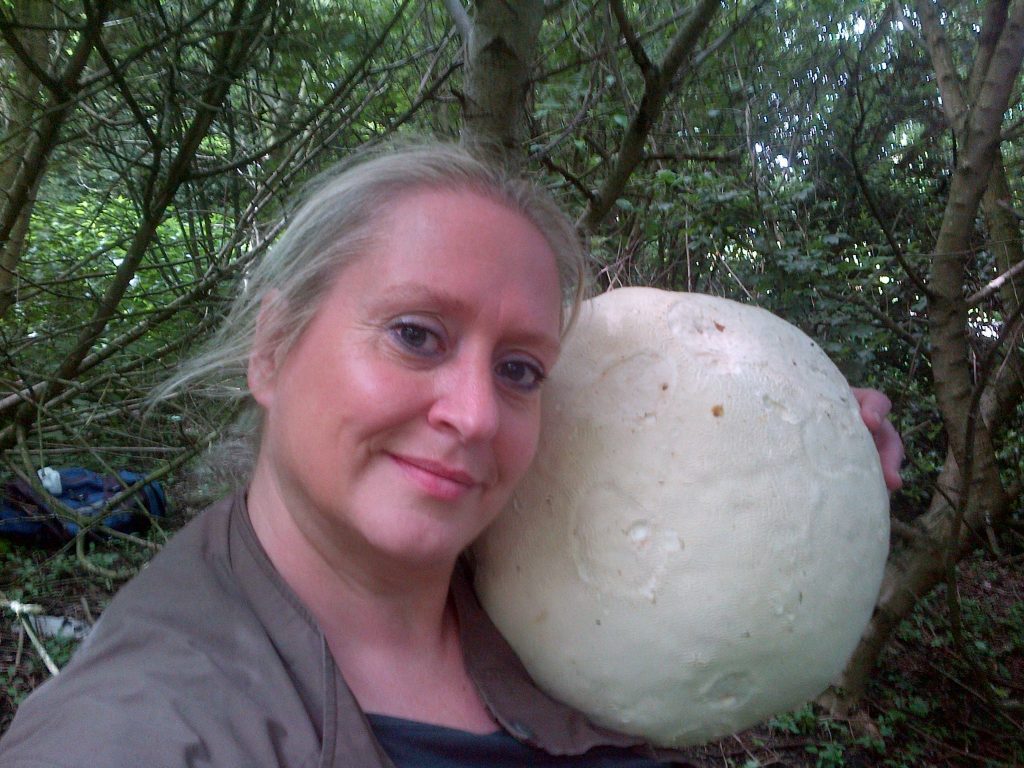
This stemmed a voyage of discovery into landscapes she never thought possible. Foraging may not be a traditional career choice – it’s certainly a first for us – but Alysia soon found it could pay the bills and relieve the work-based stress she’d felt in other jobs.
“Nature is never still. Tomorrow always brings something new and witnessing the cycle of life through flora and fauna is good for my soul.”
She quickly garnered support from other chefs who were dazzled by her sparkly personality and stunning plant knowledge. People like Danish chef, Rene Redzepi, who runs the four-time winner of the world’s best restaurant, Noma, were calling her to place orders.
Yorkshire Foragers truly is a family affair.
This rural renaissance also saw her husband Chris join the team alongside the couple’s four-legged colleague, Fred the chocolate labrador. Her mum, Barbara, now 69, also helps and she’s recently got her two teenage nephews interested.
As Grandad Dan used to say, ‘if you know where to look and what to look for, nature will always take care of you’ and Alysia and Chris spend nine months of the year travelling around Yorkshire to revisit their hotspots. They pick coconut-scented gorse from the banks of a local castle, wood sorrel from a forest in Barnsley, and sea faring plants from the Humber estuary.
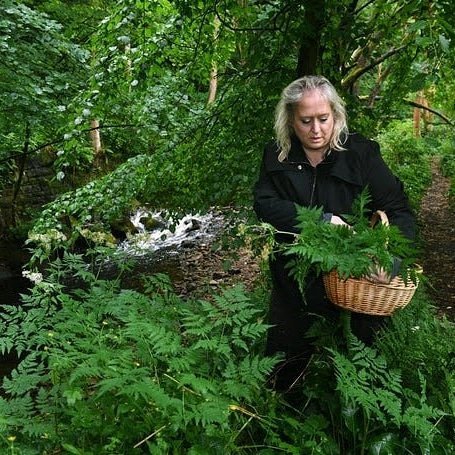
In spring, they can pick up to a tonne of wild garlic a week; summer sees the transition between seasons; autumn sparks a flurry of fungi from Jew’s ears to St George’s; then before winter takes hold lingonberries and bilberries are picked in sub-arctic conditions on the moors. All produce is then delivered the same or following day to ensure optimum field to fork freshness.
However, foraging has taken a different direction this year due to the coronavirus pandemic.
The continuity is not there within the hospitality industry through no fault of its own. But not one to rest on her laurels, Alysia has started a master’s degree in food consumer marketing and product development to steer her business through another avenue.
The plan for the next ten years is to build the Yorkshire Foragers brand and create a supermarket range to improve wild food accessibility to the public. Initial ideas include wild horseradish sauce, hedgerow vinegars and wild garlic mayonnaise.
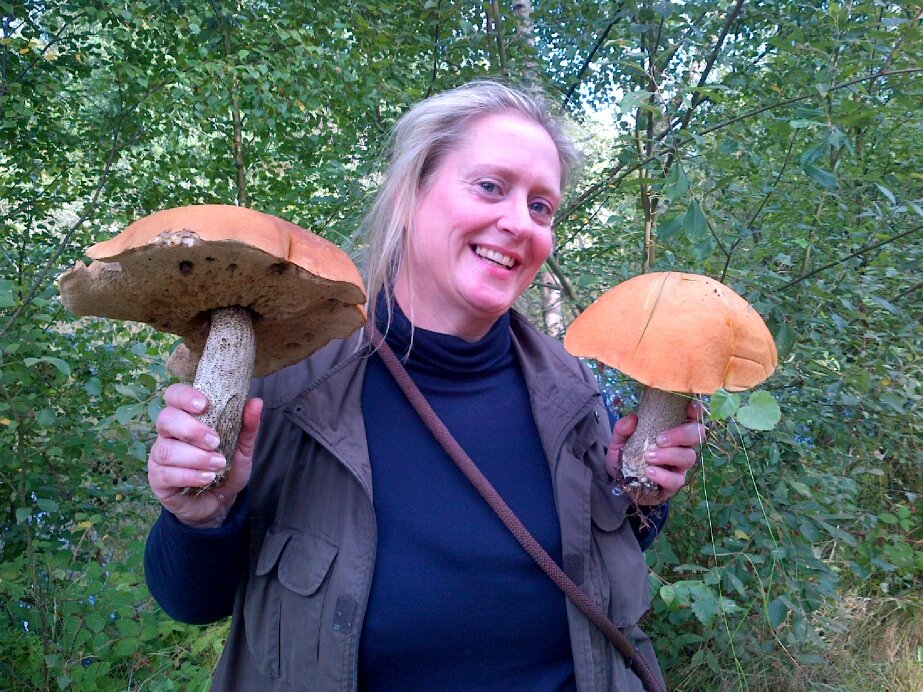
This September she also released a gin in partnership with the Poetic License Distillery in Sunderland. But this is not her first dapple in alchemy. She previously worked with Lakeland to develop a Christmas tree syrup from which she gained invaluable experience in food safety and hygiene standards which can be difficult to apply to wild foods.
She then made unique gins using British foraged ingredients, one which won gold at the 2018 SIP Awards in San Francisco – the Oscars of the alcoholic beverage world. Her new Yorkshire Foragers gin has been finely tuned to transport drinkers to the wilds of the Yorkshire moors, the winding rivers through picturesque villages and ancient Limestone woodlands.
“Creating a gin isn’t too dissimilar to making a curry; a good base is your starting point. But it can be trial and error. Some gins smell amazing like perfume then taste like nail varnish remover. I changed the base recipe six times and the top and bottom notes maybe 12 times that I think the distillery were getting fed up with me. But when they asked me to write a flavour profile it just confirmed I know what I’m on about.”
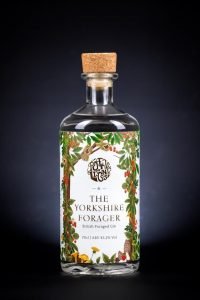
One ingredient in the gin is sweet flag, or tangerine root, which led Alysia on a wild goose chase to find it. After great research, she eventually realised that the key to her quest was to search the water gardens of stately homes. With the emergence of syphilis in the 1600s, men lost their hair so wore elaborate wigs to hide baldness. Some were made of goat or horse hair so didn’t smell pleasant. To mask the pong, wealthier men made pomades from tangerine root and then ensured they had a resident stash so they never ran out.
The new gin is just the tip of what is to come for the Yorkshire Foragers, a beacon of the beauty of South Yorkshire’s natural world.
“What I’ve learnt in life is you cannot be frightened. You have to take every opportunity you can. I’m 50 next year I still want to keep pushing boundaries, keep learning and keep evolving. Some of the weeds I pick have overcome all potential obstacles and environments to grow so why can’t we.”
To read more about Alysia’s Yorkshire Foragers journey, her new book is available here where you will also find details about the limited edition gin.






